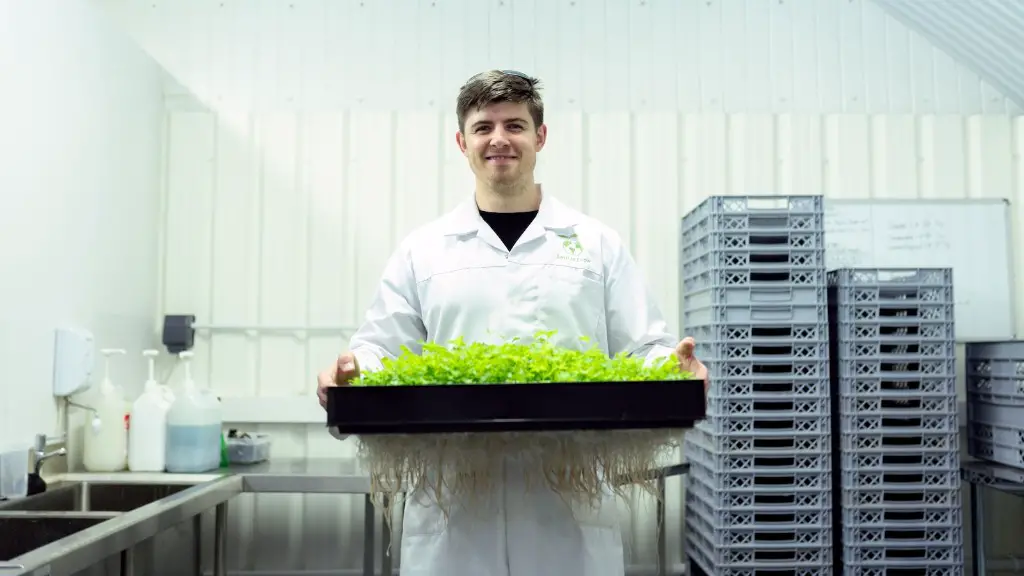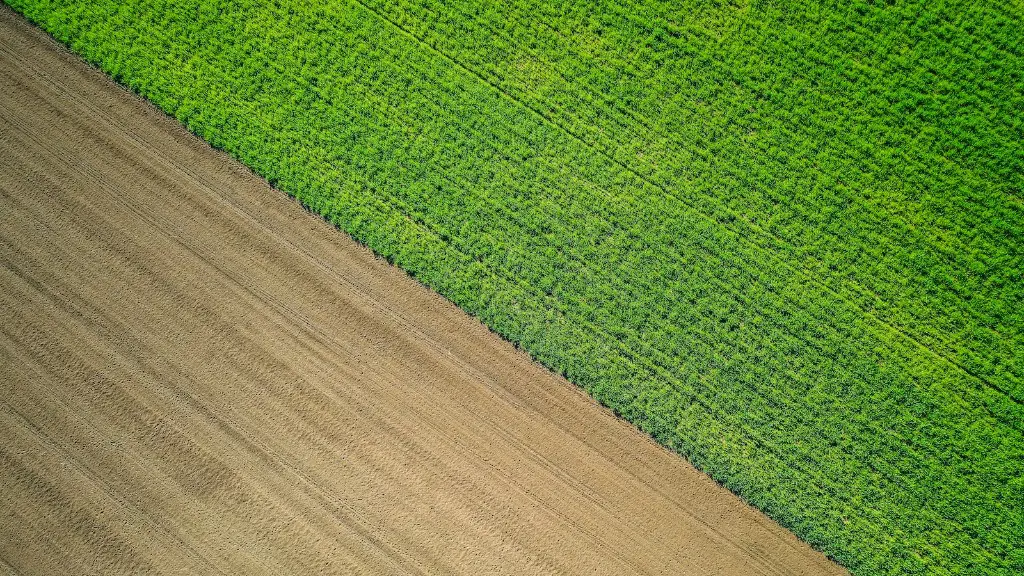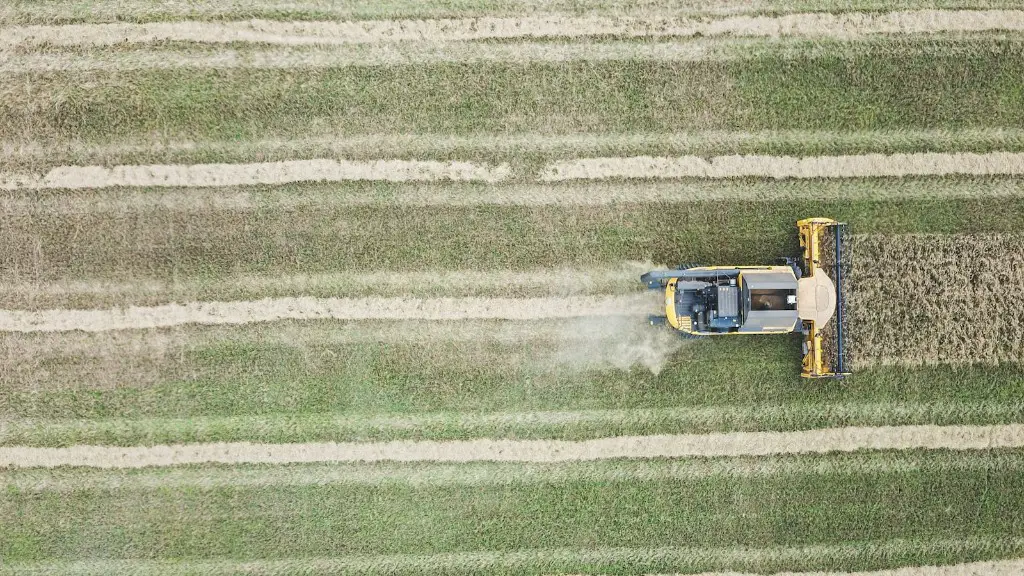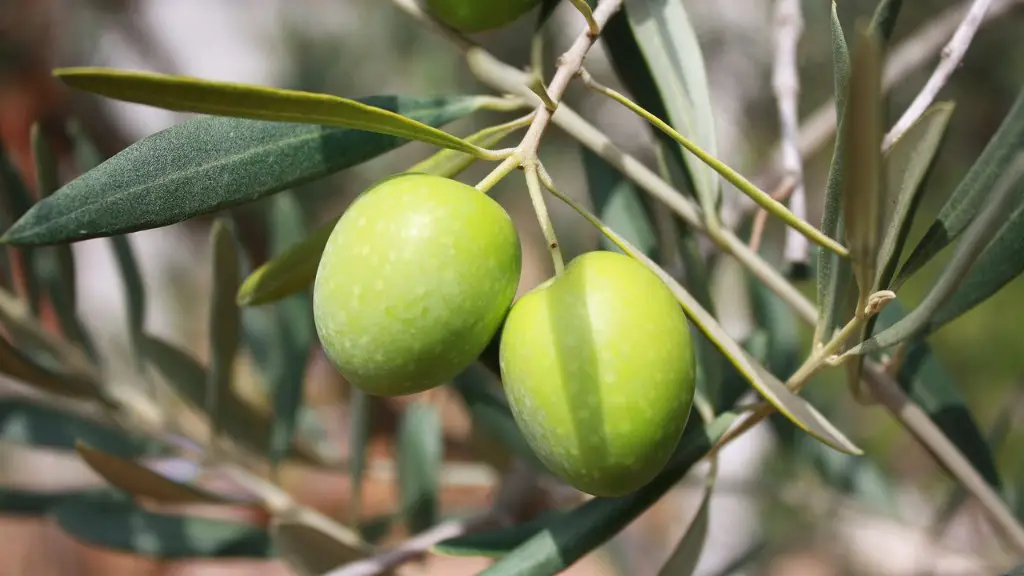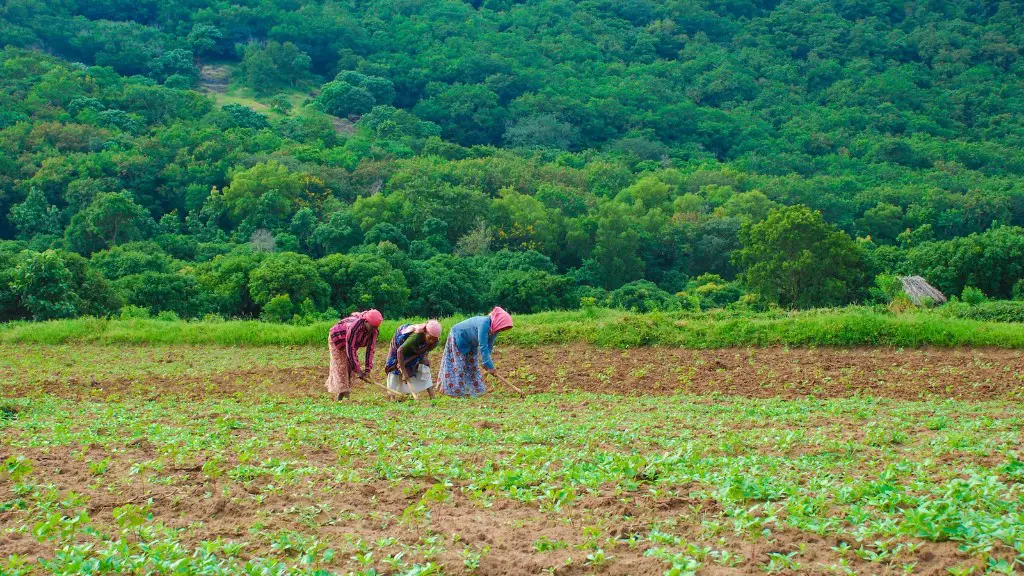Agriculture, in its simplest form, is the process of producing food, fodder, and other goods through the cultivation of plants and animals. It is a practice that has been part of human culture since prehistoric times. The main components of agriculture include land management, seed production, crop cultivation, livestock raising, and natural resource management. Agriculture is a complex system that requires knowledge and skills in many areas, including economics, soil science, crop science, and animal science.
Agriculture has been responsible for providing the majority of the food supply since the advent of farming in the Neolithic Age. It has enabled the growth of cities and Empires, and has been essential for the success of current societies around the world. Agriculture today involves complex technologies and equipment to help increase crop yields and optimize soil composition for optimal nutrient uptake.
Modern agriculture has seen advances in biotechnological methods to increase crop production and the use of automation to increase efficiency. It is also concerned with the safety and sustainability of farming practices and the environmental impact of agricultural production. Farmers must also be aware of the effects of climate change on agriculture.
Agriculture is both a science and an art. Farmers must have an understanding of soil science, plant physiology, and animal husbandry as well as the principles of business and economics. The most successful farmers have an intuitive understanding of the land and the environment and use this knowledge to optimize their production and make informed decisions.
Agriculturalists work in diverse settings, from large scale commercial farming operations to small-scale family farms. With the knowledge and development of science and technology, the production of food is has become increasingly efficient and capable of meeting the needs of a rapidly growing population. Agriculture is a major sector of the global economy and contributes to economic growth, food security, and a better quality of life for people around the world.
Land Management
Land management is an essential part of agriculture. In order to maximize the yields of crops and livestock, the soil must be tended and managed properly. Farmers must understand the unique characteristics of their land, including soil types, drainage patterns, and available nutrients. This knowledge is essential for optimizing soil composition for different crops and for developing strategies for land reclamation and conservation.
Land management techniques can include crop rotation, mulching, and soil amendment. Farmers must also carefully monitor their land to ensure that soil erosion, water infiltration, and weed growth are managed accordingly. It is important to select the appropriate techniques for the given land in order to ensure long-term sustainability and maximize yields.
Farmers must also address pest and disease control. Pests and diseases can be the result of poor land management, or can be caused by external factors such as climate change. An understanding of the biology and lifecycle of different pests and diseases can help farmers develop the best management strategies to protect their crops and livestock.
Farmers also need to monitor their land for environmental risks such as soil erosion and water pollution. It is essential to understand the impacts of human activities on surrounding ecosystems, and to develop management strategies that protect agricultural land from contamination.
Land management is an essential part of agriculture, and farmers must be knowledgeable about the unique characteristics of their land in order to maximize yields and maintain a sustainable farming operation.
Seed Production
Seed production is a key part of agriculture. It requires an understanding of the biology and genetics of different plants in order to produce high-quality seeds that yield higher yields. This knowledge is essential for controlling the genetic composition and selecting the best seeds for different crop varieties.
Farmers must select the right species of seed for their climate zone and soil type, and must understand the traits that will favor growth in their particular location. The use of quality control techniques is also essential, as there can be significant variation in the composition of seed depending on the source.
Farmers must also pay attention to the storage and transport of their seed, as temperature and humidity changes can affect the success of the crop. Additionally, seed quality can be affected by pests, fungi, and other environmental factors, so it is important to take precautions to prevent contamination.
Seed production is a complex process that requires an understanding of the genetics of different plants and the environmental factors that can affect the success of a crop. Proper selection, storage, and transport of seeds can ensure that farmers get the maximum yield from their crops.
Crop Cultivation
Crop cultivation is one of the most important aspects of agriculture. Farmers must understand the needs of the plants they are growing, as well as the environmental factors that can affect their growth. Proper crop planning and cultivation techniques are essential for a successful harvest.
Crop cultivation involves selecting the right type of crop for the climate, soil type, and available resources, as well as planting, monitoring, and harvesting. Planting strategies must be tailored to the characteristics of the specific crop, such as the timing of planting, spacing, and irrigation. Additionally, farmers must be aware of the effects of different pests, weeds, and diseases on the crop.
Farmers must also understand the principles of water management to ensure that crops have the right amount of water, and must monitor their crops closely to ensure that they are receiving the correct amount of sunlight and nutrients.
Crop cultivation requires an understanding of the needs of different plants and the environmental factors that affect their growth. Proper crop planning and cultivation techniques are essential for a successful harvest.
Livestock Raising
Livestock raising is an important part of agriculture. Farmers must have an understanding of the biology and needs of different animals in order to ensure their health and welfare. In addition to providing feed, shelter, and health care, farmers must also provide a safe environment for their animals.
The success of a livestock operation depends on the selection of breeds and the implementation of effective breeding programs. Farmers must also understand nutrition and health care, as well as the proper housing and handling of animals. Herd health and sustainability are essential for the success of a livestock operation.
Farmers must be aware of the potential environmental impact of their operations, including the effects on air, water, and soil quality. Water conservation is also a key factor in livestock raising, as it is important to manage the runoff of animal waste in order to avoid contamination of aquatic systems.
Livestock raising is an intricate part of agriculture, and it requires an understanding of the biology and needs of different animals in order to ensure their health and welfare. Proper selection, breeding, and herd management techniques are essential for a successful operation.
Natural Resource Management
Natural resource management is an essential part of agriculture. Farmers must understand the complexities of ecosystems and the impact that human activities can have on the environment. Natural resource management involves strategies for the sustainable use and protection of resources, such as forests, water, and soil.
Farmers must understand the implications of different land-use practices such as logging, grazing, and burning. They must also be aware of the effects of climate change on their operations, as well as the laws and regulations that govern the use and protection of natural resources.
It is also important to understand the benefits of sustainable agriculture, such as soil health, water conservation, and carbon sequestration. Sustainable agricultural practices are essential for maintaining soil fertility, preserving biodiversity, and reducing the impacts of climate change.
Natural resource management is an important part of agriculture, and farmers must understand the complexities of ecosystems in order to ensure the sustainable use and protection of resources. Sustainable agricultural practices are essential for the long-term health of the land and the environment.

